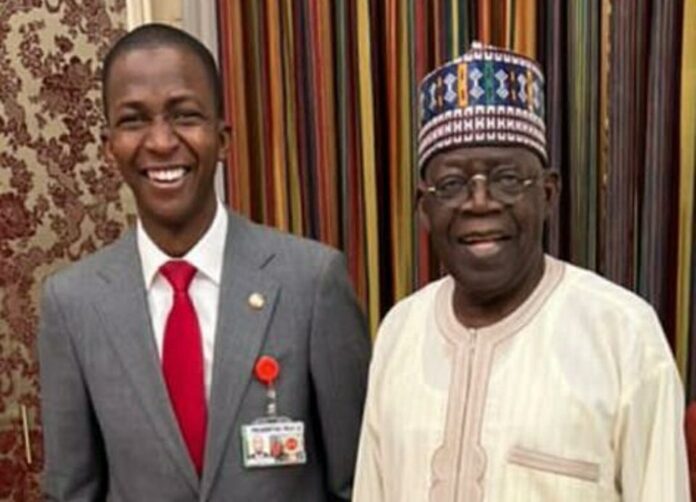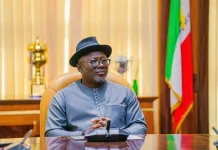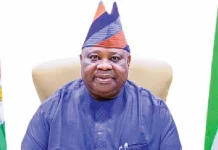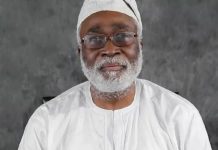Since the embattled Chairman of the Economic and Financial Crimes Commission, Abdulrasheed Bawa, was arrested, there has appeared to be an unusual lack of activity from the anti-graft agency, particularly in light of the unfulfilled threat to detain some of the recently-ex-governors and prevent the corrupt among them from traveling. DIRISU YAKUBU examines this development and explains why the President Bola Tinubu-led government must restore Nigerians’ faith that he
Although there was controversy surrounding President Bola Tinubu’s election in February of this year, many Nigerians felt that he got off to an impressive start. Many of Tinubu’s supporters believe he is the one who will succeed Muhammadu Buhari and lead Nigeria to a more promising future.
His election is seen by his supporters as a great opportunity for the country to experience a fresh start across all sectors, including a comprehensive fight against corruption, which has been identified as a major hindrance to the country’s development given his background as a democracy enthusiast who, alongside other notable Nigerians, fought to return the country to democracy. He is expected to champion a paradigm shift in the country’s development because he has stated that becoming president of the country is his life’s ambition.
Intriguingly, Tinubu’s eight-point agenda, which includes “food security, poverty eradication, economic growth, job creation, access to capital, improving security of life and property, rule of law, and fight against corruption,” seems to capture what the country needs right now. They claimed that these matters must be addressed if a country hopes to achieve its full potential as the real giant of Africa and a player in global good governance.
When the President ordered the suspension of Godwin Emefiele as the Central Bank Governor and Abdulrasheed Bawa as the Chairman of the Economic and Financial Crimes Commission, respectively, a few weeks into his presidency, the fight against corruption appeared to take more than a passive stance. It’s interesting that neither the EFCC nor the Department of State Services, who are tasked with investigating economic crimes, have custody of the two men.
When the EFCC issued a memo in May 2023 warning that some of the departing governors, starting with Bello Matawalle of Zamfara State, were on the commission’s radar for conduct related to corruption, it made clear that it was prepared to address corruption at the subnational levels.
Matawalle, who is currently the Minister of State for Defence, had demanded Bawa’s resignation and claimed that Bawa had received a financial demand from the EFCC.
The former governor had argued that “the probe should be all-encompassing and cover all officers in an effort to bridge the obvious knowledge-gap and inertia displayed by the EFCC chair. I demand that the EFCC chair extend comparable invitations to members of the Federal Executive Council and officers of the Presidency, which is the nation’s highest level of government.
At a press conference where Osita Nwajah, the director of media and public affairs for the anti-graft organization, responded to the allegation, he said, “The real issue with Matawalle is that he is being investigated by the EFCC over allegation of monumental corruption, award of phantom contracts, and diversion of over N70bn.
“The governor allegedly diverted the funds through proxies and contractors who received payment for contracts that were not carried out. The funds were obtained as a loan from an old generation bank purportedly for the execution of projects across the local government areas of the state.
“So far, the investigation by the commission has shown that more than 100 businesses have received payments from the funds without any proof of services provided to the state. Startling revelations about how they were allegedly forced by the governor to return the funds received from the state coffers back to him through his aides after converting them to US dollars were made by some of the contractors who had been invited and questioned by the commission.
The director further claimed that the contractors acknowledged that they did not perform any services for Zamfara State, but rather that they were given instructions to exchange the money they were paid for US dollars and return it to the governor of the state via some of his commissioners, particularly the commissioners in charge of finances and local government affairs.
“One of the contractors, a well-known Abuja real estate developer, amassed N6 billion on a N10 billion contract without offering Zamfara State any services. For a contract to supply medical equipment, another contractor received over N3 billion, but the commission was able to track a payment of N400 million from his account to a Bureau de Change operator. According to Nwajah, the contractor admitted that the payment was made to obtain the dollar equivalent for the state governor.
The claims made by Matawalle “ought not to be dignified with a response,” the EFCC asserts. This situation is a textbook example of corruption fighting back. The cause of Matawalle’s outburst was paranoia, which was brought on by the stress of the EFCC’s legal operations.
The director continued, “However, a measured response has become imperative to expose Matawalle’s outburst for what it is, a hollow gambit to deflect attention from the real issue, for the sake of some gullible citizens who might be swayed by the governor’s sudden burst of crusading zest.
“The problem is unrelated to how transparent the asset recovery and disposal process of the EFCC is. Contrary to Matawalle’s claims, the commission oversaw a process of asset disposal that was widely hailed as the most transparent in the nation’s history. The Federal Government has since received the proceeds of the open and transparent exercise, and they are using them to build infrastructure for Nigerians.
“The issue is also unrelated to a plea agreement. Matawalle’s criticism of a process in which he has benefited is, in fact, hypocritical. Plea bargaining is a legal practice, and the commission has never applied this principle in a way that violated the law. Matawalle is free to disclose any evidence he may have of misuse of the plea agreement process.
A month later, the hunter was the victim in an unexpected turn of events.
The President suspended Bawa, who promised to bring charges against Matawalle after he stepped down as governor.
According to a statement by Willie Bassey, Director of Information at the Office of the Secretary to the Government of the Federation, the action was taken to ensure that the investigation into Bawa’s actions while in office would be completed.
“This comes after serious allegations of office abuse made against him. According to the statement, Mr. Bawa has been instructed to hand over control of his office immediately to the Director of Operations in the Commission, who will manage operations for the Office of the Chairman of the Commission until the investigation is finished.
There appears to have been a pause in the commission’s activities since Bawa’s ordeal started.
Former governors frequently attended events hosted by the EFCC after finishing their terms in office. The commission frequently requested their attendance to question them regarding financial mismanagement and bribery while in office. The majority of the time, the information was made public.
One of the intriguing cases involved the former governor of Ekiti State, Ayo Fayose, who after leaving office, in response to the pending invitation to him, dramatically presented himself to the commission. He went with his bag that contained his clothes and other personal belongings in the hopes of spending some time in the commission’s care.
Hours after completing his term and handing over power to his successor, former Anambra State governor Willie Obiano was also detained at the airport on the same charges of corruption.
While it appears that theft in public offices has gotten worse, there are worries that not much is being done to hold dishonest public officials accountable for their crimes against the people, the majority of whom are sinking further into poverty while many more are falling into poverty every day as a result of the harsh economic environment that should have been improved if there was wise resource use.
In fact, the embattled EFCC chairman had stated that corrupt governors would be prohibited from leaving the country and that the Nigeria Immigration Service would be notified of their identities to ensure they did not flee before the May 29 handover date. However, neither at the airport nor elsewhere, there have been any reports of former governors being detained as of yet. Only former Benue State governor Samuel Ortom, as far as is known, received an invitation from the commission in June. After several hours of questioning, he was eventually let go.
Although the commission has looked into and prosecuted other corrupt individuals besides governors, such as lawmakers and influential business figures, little is known about these other groups of people.
Join Television Nigerian Whatsapp Now
Join Television Nigerian Facebook Now
Join Television Nigerian Twitter Now
Join Television Nigerian YouTUbe Now





